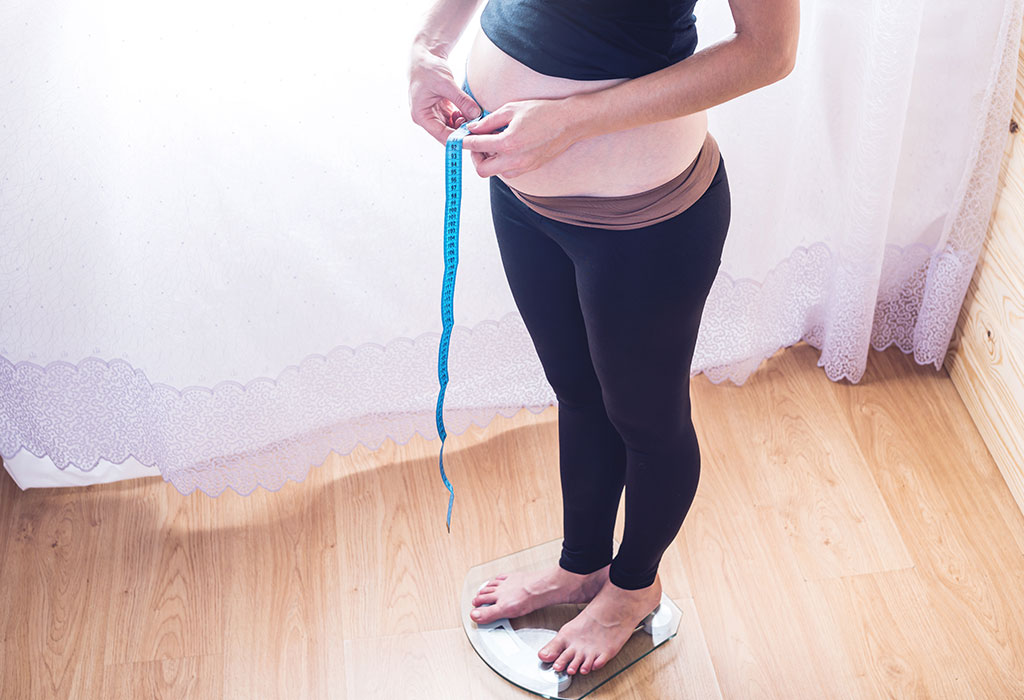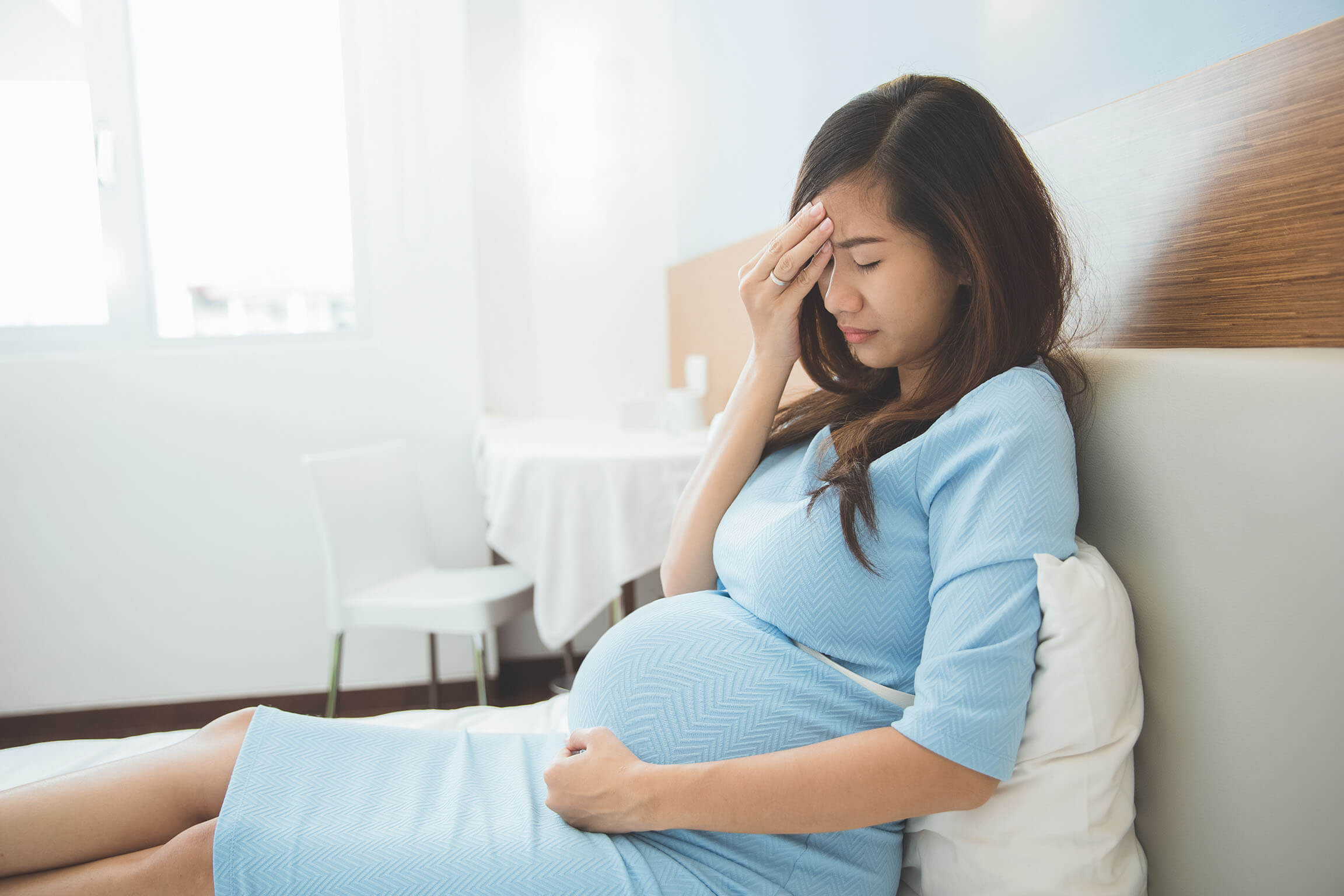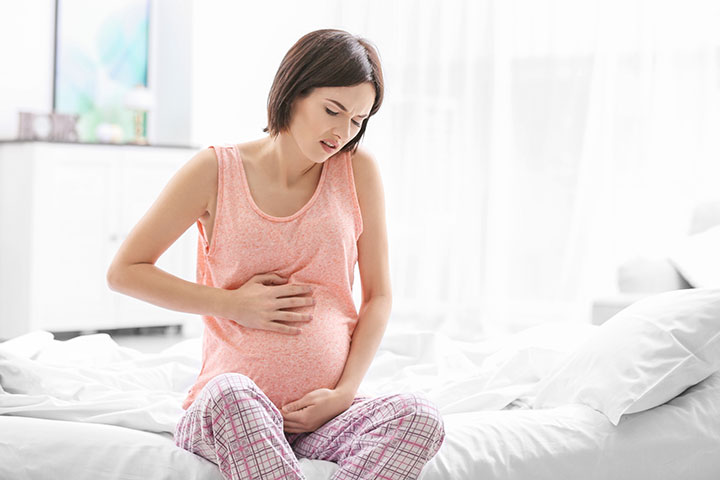Experiencing weight loss during the third trimester of pregnancy can be concerning for expectant mothers. It’s a time typically associated with steady weight gain, as the baby reaches full development. However, slight weight fluctuations can occur for various reasons. In this guide, we will explore the potential causes of weight loss in the third trimester, differentiating between normal variations and signs that may warrant medical attention to ensure both the health of the mother and the safe arrival of the baby.

Contents
Why Am I Losing Weight During Pregnancy 3rd Trimester?
Losing weight during the third trimester of pregnancy can be unexpected and concerning, as this period is typically marked by steady or even significant weight gain due to the baby reaching its final stages of growth. Here are some potential reasons and considerations if you’re experiencing weight loss during this critical time:
1. Normal Weight Fluctuations:
Slight weight fluctuations are common and can be due to variations in water retention, especially as the body prepares for labor. However, significant or persistent weight loss should not be overlooked.
2. Diet and Appetite Changes:
As the baby grows, the increased size can press against the stomach, leading to decreased appetite or discomfort after eating. Some women may also intentionally or unintentionally reduce their calorie intake due to these changes in appetite.
3. Gastrointestinal Issues:
Common pregnancy-related conditions such as gastroesophageal reflux disease (GERD) or constipation can affect how much and how often you eat. Managing these conditions can sometimes inadvertently lead to weight loss.

4. Increased Metabolic Rate:
The body’s metabolism can increase during pregnancy to support the growing fetus, which might lead to burning more calories than usual.
5. Physical Activity Levels:
An increase in physical activity or continued exercise during the third trimester without adjusting caloric intake might result in weight loss.
6. Health Complications:
Certain health issues can cause unintentional weight loss, including:
- Gestational diabetes: Sometimes managed through a controlled diet, which might lead to weight loss.
- Preeclampsia: This condition can cause sudden weight loss due to decreased liver function or other metabolic disturbances.
- Hyperemesis gravidarum: Severe, persistent nausea and vomiting can lead to significant weight loss and dehydration.
7. Intrauterine Growth Restriction (IUGR):
IUGR is a condition where the baby grows slower than expected because the placenta isn’t providing enough nutrients. This can sometimes be reflected in the mother’s weight gain patterns.
Is it Normal to Lose Weight during the Third Trimester of Pregnancy?

Minor weight fluctuations in the third trimester aren’t uncommon, especially if inconvenient symptoms like morning sickness persist. However, substantial weight loss merits medical attention—your healthcare provider can aid in identifying any underlying health issues.
In the third trimester, your body’s increased energy demands might lead to fat reserves being used up, causing weight reduction. Lifestyle changes also factor in. Opting for healthier meals, regular light exercises such as prenatal yoga or swimming could result in weight stabilization, and even a slight decrease.
On the flip side, certain conditions, like gestational diabetes or hyperemesis gravidarum, are associated with weight loss. Gestational diabetes involves high blood sugar affecting the way your body uses energy, possibly leading to weight loss. Hyperemesis gravidarum, excessive nausea, and vomiting can substantially reduce calorie intake, leading to weight loss.
Consequences of Weight Loss during Pregnancy
Losing weight during pregnancy, especially in the second or third trimester, is generally not recommended because it can negatively impact your health and your baby’s development. Here’s a breakdown of some potential consequences:
For the Baby:
Low Birth Weight: One of the major concerns is that weight loss can lead to a low birth weight baby. Low birth weight babies are at an increased risk for health problems such as:
- Breathing difficulties
- Increased risk of infection
- Feeding problems
- Developmental delays
- Nutrient Deficiencies: If you’re not consuming enough calories and nutrients, your baby may not receive all they needs for proper growth and development.
For You:
Nutritional Deficiencies: Similar to the baby, you may also experience deficiencies in essential vitamins and minerals if you’re not getting enough nutrients.
Increased Risk of Complications: Some studies suggest that losing weight during pregnancy may increase the risk of certain pregnancy complications, such as:
- Anemia
- Preeclampsia (high blood pressure during pregnancy)
- Preterm birth (delivering before 37 weeks)
What Should You Do If You’re Losing Weight At The End Of Pregnancy?
If you’re concerned about losing weight at the end of pregnancy (third trimester), here are the steps you should take:

1. Consult Your Doctor:
This is the most crucial step. Don’t hesitate to schedule an appointment with your doctor to discuss your weight loss. They can:
- Determine the Cause: Your doctor will investigate the reason behind your weight loss. It could be a simple explanation like nausea or a more complex underlying condition.
- Assess Your Health and Baby’s Well-Being: They will monitor your health and your baby’s development through tests and scans to ensure everything is progressing normally.
- Develop a Plan: Based on the cause and your individual situation, your doctor will create a personalized plan to address the weight loss and ensure your baby’s health.
2. Be Open and Honest:
- During your doctor’s appointment, openly discuss any concerns you have about your weight loss, eating habits, or anything else related to your pregnancy.
- The more information you provide, the better your doctor can understand your situation and offer tailored advice.
3. Focus on Nutrient-Rich Foods:
- Aim to eat a balanced and healthy diet rich in fruits, vegetables, whole grains, and lean protein sources.
- These foods provide essential vitamins, minerals, and other nutrients that you and your baby need for optimal health.
4. Increase Calorie Intake (if recommended by your doctor):
- If your doctor determines insufficient calorie intake is the cause of weight loss, they might recommend increasing your daily caloric intake.
- They may suggest specific healthy foods to add to your diet or advise consulting a registered dietitian to create a personalized meal plan.
5. Stay Hydrated:
- Drinking plenty of fluids throughout the day is crucial for overall health during pregnancy.
- Aim for eight glasses of water or other hydrating fluids daily, unless your doctor provides different instructions.
Frequently Asked Questions:
Does losing weight in the third trimester mean labor is near?
Losing weight or maintaining your current weight in the third trimester can be a sign that your body is preparing for labor. This is relatively common, so don’t be alarmed but do monitor any significant changes and consult with your healthcare provider.
When should I worry about weight loss in the third trimester?
Weight loss in the third trimester could indicate complications like lower amniotic fluid levels, poor baby growth, or pregnancy-induced hypertension. If you notice a significant drop in your weight, make sure you contact your healthcare provider immediately.
How do you know your body is preparing for labor?
You can tell your body is preparing for labor if you experience signs like cramps, a ‘show’ (bloodstained vaginal discharge), or your waters breaking. These are typically felt between 37 and 42 weeks of pregnancy.
Why am I losing weight at the end of my pregnancy?
Lower levels of amniotic fluid towards the end of pregnancy can cause weight loss. As these levels decrease before your water “breaks,” your weight may drop due to the reduced amount of water weight.
How do you know if your amniotic fluid is low?
Early signs of low amniotic fluid include fluid leaking from your vagina, slower baby movements, or a smaller-than-expected uterus size, as measured by your doctor. If you notice any of these signs, seek immediate medical attention.

Hello, I’m Ravindra. Over the years, I’ve immersed myself deeply into the world of fitness and health, transforming both my body and mind. Writing has allowed me to share my journey, insights, and expertise with those just starting out and seasoned fitness enthusiasts alike. Beyond just routines and diets, I believe in inspiring others to adopt a holistic approach to well-being.
